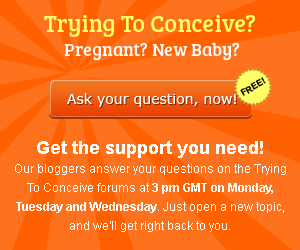Your journey towards parenthood doesn’t start with pregnancy itself — it starts the moment you think about trying to conceive. Prenatal care and the right decisions about labor and delivery are important, but what you do before you ever get pregnant is just as essential. What are the most common preconception health questions, and their answers?
When do I need to start taking folic acid, and how much?
Folic acid is a B vitamin that naturally occurs as folate. Since it is the only preconception supplement that has been proven to prevent birth defects (specifically neural tube defects such as spina bifida), all women who are hoping to start trying to conceive should be taking it. You need to take a 400 mg supplement daily for three months before you ditch your birth control, because folic acid builds up in your system over time.
You can take folic acid as a stand-alone supplement, or as part of a more comprehensive prenatal and preconception tablet. If you opt for the latter, then make sure it contains at least 400 mg. By the way, folic acid also increases a mans sperm count and quality so your partner can take it too.
What do I need to give up before trying to conceive?
Before you try to conceive, you need to quit unhealthy lifestyle choices. Smoking and drinking are two obvious ones (along with illegal drugs, obviously!). You and your other half both need to be committed, since these choices affect fertility in both sexes and second hand smoke is just as harmful to a fetus as maternal smoking.
There is some evidence to suggest that drinking more than 200 mg of caffeine increases your risk of a miscarriage. Cut down to one cup in the morning, and you will be fine. Prescription medications are another potential issue. If you are on any, tell your doctor that you are planning a baby soon, and make sure that your drugs are either compatible with pregnancy or that you change them.
Cut down on your junk-food intake too. Couples who would like a baby need to eat as healthily as possible.
Do I need to lose weight — or put it on?
Check your Body Mass Index before you ditch your contraceptives. If it is within the normal range, you can go right ahead. If you are close to the normal range, then you can work on putting on weight or shedding it while you wait for your folic acid to kick in. You don’t need to delay trying to conceive while you work on your weight unless you are very underweight or fall within the obese range. Talk to your doctor for further advice.
Regular exercise is important to anyone. If you are a woman who is trying to conceive or going to soon, working out at least three times a week will ensure that you go into your pregnancy as fit as you possibly can. Work on your muscles (including abs), but also on your stamina through cardio exercises. Women who are fit during pregnancy feel better and recover from pregnancy, labor and birth faster. Exercise also keeps you from putting too much weight on while you are expecting — but steer clear of dangerous, high-impact sports.
Do I need to see a doctor before I get pregnant?
Yes, ideally. A preconception checkup for both partners make sure that any obvious health problems are identified before you get pregnant. Sexually transmitted diseases, blood pressure problems, and nutritional deficiencies are obvious areas that need attention. There is nothing quite like knowing you are all good to go, and you can just be happy when you see that positive pregnancy test.
Do I need to tack my menstrual cycles?
No. You can get pregnant if you have regular intercourse, regardless of whether you track your menstrual cycles. Research shows that couples who have sex every day actually have the highest chance of getting pregnant during any given month. However, many women find it useful to monitor their cycles. Ovulation calendars, ovulation predictor kits, fertility charting and monitoring cervical mucus are all ways to find out when you are fertile.
Knowing your ovulate date makes you feel in control of your TTC journey, and can help you plan intercourse if you and your partner have busy work schedules.
Don’t spend too much time on this, though. Reading about pregnancy and parenting may be better ways to spend your time in the long run.

